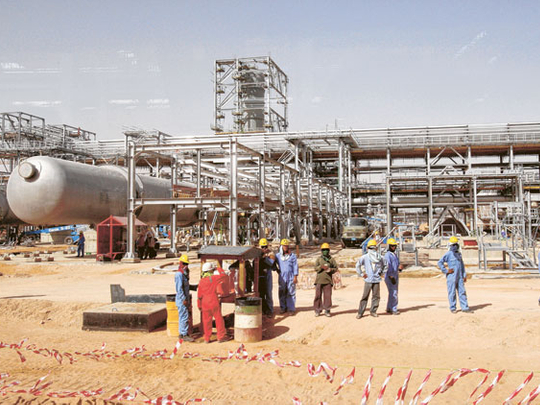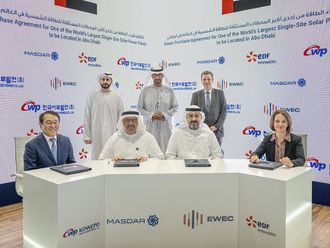
Riyadh: Higher prices and stronger demand from Asia, especially quake-hit Japan and China, increased Saudi Arabia's exports of petrochemicals by 39 per cent in May over the same period last year.
According to the latest report by the Department of Statistics and Information, the kingdom's petrochemical exports jumped to 4.80 billion riyals (Dh4.70 billion) in May from 3.45 billion riyals a year earlier.
Petrochemicals accounted for 34 per cent of non-oil exports valued at 13.8 billion riyals in May. Plastics made up 30 per cent of the exports, the data placed on the department's website showed.
The kingdom reported a 20 per cent growth in shipments of petrochemicals in April amid higher demand from Asia.
There was a huge demand for petrochemicals from Japan in March following the devastating earthquake and tsunami.
The Middle East's largest economy exported 2.59 million and 2.66 million tonnes of petrochemicals in March and April respectively, the report pointed out.
Saudi Arabia shipped 9.97 million metric tonnes of petrochemicals from January through April compared with 9.07 million tonnes in the year-earlier period, the Saudi Ports Authority said on its website on Tuesday.
The Saudi petrochemicals industry is leveraging its advantages in ethane feedstock to expand its Asian markets, with exports, output and production capacity set to continue to expand in the current year.
According to a report by Al Rajhi Finance, the kingdom has plans to increase oil drilling and exploration by 28 per cent to ensure sufficient reserves to meet the growing demand. The report also noted that the increase in oil production would lead to a rise in the production of associated gas.
Dr Abdul Rahman Al Zamil, president of the Saudi Exports Development Centre, noted recently that a number of petrochemical companies, including Sahara for Petrochemicals, Kayan and Sepchem, inaugurated new production lines in the first quarter of 2011.
Analysts expected that this would reflect in the performance of the petrochemical companies with an increase in their exports as well as their profit margins in the second quarter of the year.
Foodstuffs
Saudi Arabia accounts for about 63 per cent of the food and beverage market in the Gulf, with its consumption amounting to $9 billion, according to a report.
The rapid growth of the population, which is expected to double by 2023, is the major factor in the rising demand for foodstuffs. According to the report of BMI, the average individual consumption of foodstuffs in the kingdom will rise to 31.24 per cent by 2014.












